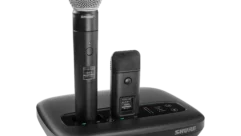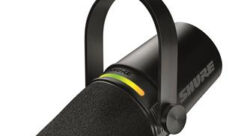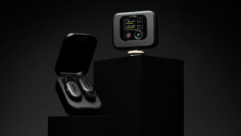Shure Files White Spaces Petition for Reconsideration
Shure announced that it has filed a Petition for Reconsideration on the FCC White Spaces Rules (docket 04-186) published in the Federal Register in February.
Shure announced that it has filed a Petition for Reconsideration on the FCC White Spaces Rules (docket 04-186) published in the Federal Register in February.
“Whether the Commission’s new ‘White Spaces’ rules successfully protect incumbent operations, including particularly wireless microphone operations, in this challenging spectrum environment is a matter determined by the specific details of the FCC’s rules. It is imperative that these rules provide sufficient protection when actually implemented in real-world environments,” said Mark Brunner, senior director of industry and public relations for Shure, in a statement. “It is critical that the FCC’s technical and operational rules, including pre-certification testing rules, get it right before mass produced equipment is pushed into the market.”
Shure urged in its filing that the FCC impose rigorous certification testing, open to the public, on hybrid geolocation/sensing devices. Shure also sought reconsideration of the FCC decision to permit portable devices to operate on first adjacent channels to DTV. Shure requested that the FCC at least reduce the allowable power of TV band device (TVBD) operations on adjacent channels.
To prevent severe interference to wireless microphones, Shure urged the following modifications of several technical and behavioral rules:
- TVBDs must demonstrate that they maintain sensitivity to the -114 dBm level in the presence of strong signals on adjacent channels, a common scenario in real-world operations
- In-service monitoring requirements should be revised to require rechecks every 10 seconds
- A 60-minute non-occupancy period should be adopted for TVBDs
- High-power fixed TVBDs should be required to avoid a 2 kilometer protected zone around wireless microphones
- Geolocation databases should synchronize at least once an hour
- TVBDs should be required to access the database and confirm frequency availability in real-time or near real-time
- The period of time that TVBDs may continue operating after losing contact with the database should be reduced from 24 to four hours.
Finally, according to the company, Shure urged the FCC to make clear that TVBD manufacturers, TVBD users, and geolocation database administrators may not pick and choose which wireless microphone operations to protect from TVBD interference based on microphone application, power level, license status, or any other characteristic. Shure said that to do so would abrogate the FCC’s commitment to protecting incumbents and harm an important and vital technology critical to many sectors.
In addition to Shure’s Petition for Reconsideration, several other companies and organizations also submitted their own filings, including the Society of Broadcast Engineers and the Institute of Electrical and Electronics Engineers.










